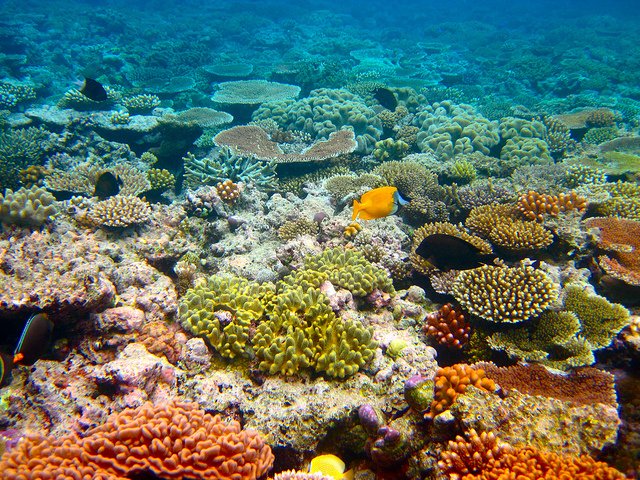By Joanna Prisco
Could an experimental coral fertility treatment create a “baby boom” for the Great Barrier Reef?
Scientists say a recent trial of “coral IVF” designed to help heal damaged parts of Australia's 2,300 kilometer-long underwater ecosystem is showing signs of success.
"There's a very clear outcome, the higher the numbers of larvae that you put into the reef system, the more coral recruits you get," lead scientist Peter Harrison, a professor at Southern Cross University in Australia, told CNN. "The pilot studies at small scales are giving us hope that we will be able to scale this up to much larger reef scales."
Take Action: Stand Up for the Arctic
A recent trip to the reef confirmed that millions of coral larvae Harrison’s team laid at Heron Island and One Tree Island 18 months ago managed to "significantly increase" the numbers of baby coral.
If successful, this treatment could prove to dramatically heal damages to the Great Barrier Reef, which lost roughly half its coral in recent years after two mass bleaching events in 2016 and 2017.

Bleaching is when the organisms that feed coral and give it color are killed, turning it white. Rising ocean temperatures that cause bleaching events are the primary threat against the reef today.
Read More: The Great Barrier Reef Nearly Died 5 Times. This Could Be Its Last Chance.
But the Great Barrier Reef is also being damaged by environmental dangers such as industrial pollution, overfishing, and plastic pollution, among other hazards.
A recent report published in the scientific journal Nature Geoscience stated that the Great Barrier Reef has come close to fully dying five times, due to rising and falling sea levels. But the latest environmental threats could prove fatal if left uncorrected.
Still, critics of the “coral IVF” treatment believe money could be better spent combating climate change rather than implementing small projects.
Read More: Australia Commits $60M to Save the Great Barrier Reef
"If we stabilize the climate then there's a chance these methods will work,” Sean Connolly, a professor in marine biology at James Cook University, told CNN. “If we don't stabilize the climate then I don't think they have a good chance of working."
Global Citizen campaigns on the United Nations’ Global Goals, which call on countries to protect biodiversity. You can take action on this issue here.